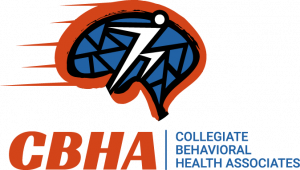New data shows concerning levels of depression and suicidal ideation among college student-athletes.
BOCA RATON, FLORIDA, UNITED STATES OF AMERICA, April 27, 2023/EINPresswire.com/ — Collegiate Behavioral Health Associates recently reviewed the mental health diagnostic data of a random sample of student-athletes who were screened through their program. To protect confidentiality, the names of the universities have been withheld.
The collected data revealed that out of the sample, 8% of student-athletes reported having experienced some recent thoughts about suicide. 24% of student-athletes reported mild to severe levels of depression and or anxiety, which necessitated further testing be conducted; After being interviewed by a social worker, 28% of the group were offered psychotherapy through CBHA or through their school’s counseling center.
This data not only provides a recent snapshot of the mental health struggles many student-athletes face in colleges and universities but also adds to the evident data of other past studies concerning student-athletes’ mental well-being. This includes a recent study published by The International Journal of Environmental Research and Public Health.
The study, sampling 615 student-athletes’ complete responses, found that 22.3% of student-athletes reported symptoms of depression. “At 22.3%, nearly one in every four student-athletes report signs and symptoms of depression,” the journal stated. “Student-athletes are required to maintain a balance between academics and specific sport requirements, placing undue stress on the student-athletes, increasing their risk of depression.”
The journal continued by sharing the results of the state and trait anxiety scores. Although they were lower for student-athletes (8.5% for state anxiety, 12.5% for trait anxiety) than for regular college students, the results still showed that student-athletes experience anxiety. And with 92% of the athletes’ self-esteem indicated to be above the threshold, per the International Journal’s data, other factors may be contributing to their depression and/or anxiety.
It was important to note, however, that the journal’s data was self-reported by the student-athletes and thus relied on their honesty.
While CBHA’s study was based on direct diagnostics and the International Journal of Environmental Research and Public Health used self-reported tools, both studies demonstrate the importance of addressing mental health in student-athletes. The results emphasize the need for one-on-one follow-up sessions for all student-athletes and consistent check-ins, highlighting the significance of optimal mental health care programs in colleges and universities.
To learn more about CBHA’s services and how they can help your college or university provide optimal mental health care for your student-athletes, please visit www.cbhamedical.com. You can also call CBHA at 888-489-1431 or email info@cbhamedical.com.
Victor Torres
Collegiate Behavioral Health Associates
+1 888-489-1431
vtorres@cbhamedical.com
Visit us on social media:
LinkedIn


